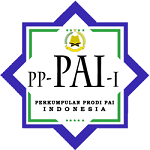Efforts to Increase Islamic Spirituality in Pondok Parsulukan
Abstract
The coaching of worship (spiritual) for the elderly at the Al-Yusufiyah Foundation aims to increase awareness and motivation in carrying out worship, strengthen faith, moral responsibility, and personality development, as well as deepen piety to God Almighty. This research is a qualitative descriptive study that explores the development of worship in the elderly. The research subjects included the elderly and nursing home managers. Data collection methods include interviews, observations, and documentation. This research was carried out for three months with a step-by-step process. The results of the study show that the implementation of worship coaching through congregational prayers, the study of taklim councils, suluk, tawajjuh, and the study of the Qur'an provide significant benefits for the daily lives of the elderly. The coaching method involves the study of taklim councils, suluk, tawajjuh, and the study of the Qur'an with materials of faith, worship, and dhikr. The obstacles faced by nursing home administrators are the lack of discipline of the elderly in attending coaching activities due to health reasons.
Keywords
Full Text:
PDFReferences
Abdullah, M. Amin. “Religion, Science, and Culture: An Integrated, Interconnected Paradigm of Science.” Al-Jami’ah: Journal of Islamic Studies 52, no. 1 (June 8, 2014): 175–203. https://doi.org/10.14421/ajis.2014.521.175-203.
Agustiawan, M. Nasir. “Spiritualisme Dalam Islam.” Jurnal Ilmiah Hukum Dan Keadilan 4, no. 2 (2017): 88–106. https://doi.org/10.59635/jihk.v4i2.110.
Andriani, Tuti. “Sistem Pembelajaran Berbasis Teknologi Informasi Dan Komunikasi.” Sosial Budaya 12, no. 1 (August 4, 2016): 117–26. https://doi.org/10.24014/sb.v12i1.1930.
Arifin, Rahmadan, Idrus Alkaf, and Heni Indrayani. “Dampak Zikir Khafi Terhadap Ketenangan Jiwa Pada Pengamal Tarekat Qadiriyah Naqsabandiyah.” Spiritual Healing : Jurnal Tasawuf Dan Psikoterapi 3, no. 2 (December 6, 2022): 98–117. https://doi.org/10.19109/sh.v3i1.13148.
Bagir, Haidar. Mengenal Tasawuf. Jakarta: Noura Books, 2019.
Birohmatika, Misykah N., and R. Rachmy Diana. “Makna Suluk Pada Lansia Anggota Jamaah Tarekat Naqsyabandiyah.” Psikologika: Jurnal Pemikiran Dan Penelitian Psikologi 17, no. 2 (August 11, 2012): 39–51. https://doi.org/10.20885/psikologika.vol17.iss2.art5.
Desmita. Psikologi Perkembangan Peserta Didik. Bandung: PT. Remaja Rosdakarya, 2017.
Erawadi, Erawadi. “Pusat-Pusat Perkembangan Tarekat Naqsyabandiyah Di Tapanuli Bagian Selatan.” MIQOT: Jurnal Ilmu-Ilmu Keislaman 38, no. 1 (2014): 81–96. http://dx.doi.org/10.30821/miqot.v38i1.53.
Hasan, Aliah B. Purwakania. Psikologi Perkembangan Islami : Menyingkap Rentang Kehidupan Manusia Dari Prakelahiran Hingga Pascakematian. Jakarta: PT. Rajagrafindo Persada, 2006.
Ichwan, Moch Nur, and Ahmad Muttaqin. Islam. Agama-Agama Dan Nilai Kemanusiaan: Festschrift Untuk M. Amin Abdullah. Yogyakarta: CISForm, 2013.
Lilik Ma’rifatul, Azizah. Keperawatan Lanjut Usia. Yogyakarta: Graha Ilmu, 2011.
Muhammadiyah, Redaksi. “Tujuh Tingkat Spiritual dalam Islam, Apa Saja?” Muhammadiyah (blog), January 18, 2021. https://muhammadiyah.or.id/2021/01/tujuh-tingkat-spiritual-dalam-islam-apa-saja/.
Rangkuti, Suheri Sahputra. “PENDIDIKAN KAUM SUFI DI INDONESIA (Materi Dan Metode Pendidikannya).” At-Tajdid: Jurnal Pendidikan Dan Pemikiran Islam 2, no. 01 (2019). https://ojs.ummetro.ac.id/index.php/attajdid/article/view/860.
Ruslan, Ruslan. Menyingkap Rahasia Spiritualitas Ibnu Arabi. Yogyakarta: Pustaka Al-Zikra, 2017. https://repository.umi.ac.id/980/.
DOI: https://doi.org/10.24952/fahmina.v1i2.11518
Refbacks
- There are currently no refbacks.
Copyright (c) 2024 Irwan Saleh Dalimunthe, Zulhamri

This work is licensed under a Creative Commons Attribution-ShareAlike 4.0 International License.
Index By
Editorial Office:
Pascasarjana UIN Syekh Ali Hasan Ahmad Addary Padangsidimpuan; Jl. T. Rizal Nurdin Km. 4,5 Sihitang 22733 Padangsidimpuan, North Sumatera, Indonesian.Phone: (+62) 634 22080 Faximili: (+62) 634 24022 email: fahmina@uinsyahada.ac.id

This work is licensed under a Creative Commons Attribution-ShareAlike 4.0 International License.











